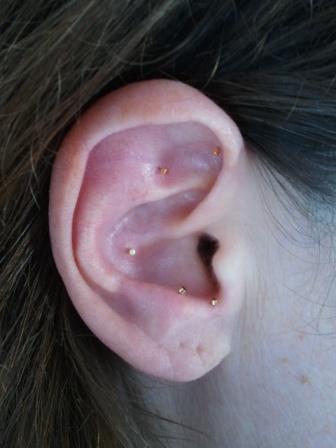A small study from Hong Kong has found that acupuncture may improve sleep quality in elderly patients with dementia. Nineteen elderly patients with dementia were followed through a control period and an acupuncture treatment period, each lasting six weeks. A standard six-point needling protocol was used, consisting of Shenmen HE-7, Baihui DU-20, Anmian N-HN-54, Yintang M-HN-3, Zusanli ST-36, and Sanyinjiao SP-6. Treatment was carried out twice per week. The results showed that that the subjects gained significantly more resting time and total sleep time in the treatment period than in the control period. A non-significant trend for improvement in sleep efficiency was also observed. (The effectiveness of acupuncture on the sleep quality of elderly with dementia: a within-subjects trial. Clin Interv Aging. 2013;8:923-9).
Another small study suggests that acupuncture improves sleep in patients with long-standing psychiatric problems. In a pilot study, carried out by researchers from Holland and Korea, the effects of acupuncture treatment on sleep were compared between a group of 16 patients with schizophrenia and an equal-sized group with depression. Eight healthy controls were also enrolled in order to establish reference values. Patients with schizophrenia and depression were randomly assigned to either a waiting list or acupuncture treatment. Acupuncture treatment was individualised, according to traditional Chinese medicine principles, and was administered in a group setting. Twelve treatments were administered over a three-month period. All patients continued with regular psychiatric treatment. After 12 acupuncture treatments significant improvements were found in overall sleep inventory scores for both schizophrenia and depression patients. No significant improvements occurred in patients in the waiting list groups. Three sleep inventory subscales, including sleep-onset latency and medication use, showed significant improvements in the schizophrenia group, but not in the depression group, suggesting that patients with schizophrenia benefited more from acupuncture than patients with depression. The use of needles did not evoke any negative emotional reactions in the patients with schizophrenia. (Sleep ameliorating effects of acupuncture in a psychiatric population. Evid Based Complement Alternat Med. 2013;2013:969032).
Acupressure may offer an effective, low-cost, non-invasive means of improving sleep quality for psycho-geriatric inpatients. Taiwanese investigators recruited 60 elderly hospital inpatients with affective disorders and assigned them randomly to an experimental or control group. Both groups received standard medical care, and those in the experimental group received a daily nine-minute acupressure treatment over four consecutive weeks. Acupressure was applied to three acupoints: Shenmen HE-7, Yongquan KID-1 and Neiguan P-6. Participants in the experimental group improved significantly in terms of both subjective and objective sleep quality after four weeks of treatment. (Acupressure improves sleep quality of psychogeriatric inpatients. Nurs Res. 2013 Mar-Apr;62(2):130-7).
Categories: Psychological / emotional







